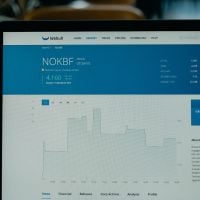Deadline: 27 May 2019
The European Union (EU) is currently accepting proposals from eligible organisations for a thematic program entitled “Civil Society Organizations and Local Authorities 2018-2019”.
Objectives
- The overall objective of this call for proposals is to promote a more dynamic and inclusive civil society in East Timor, contributing to participatory democracy and equitable and sustainable political, economic and social development.
- The specific objective of this call is to enhance the capacity of CSOs to strengthen their presence on the public scene in the political, social and economic spheres by contributing to more effective public policies and services, to a more participatory and transparent democracy and to development sustainable and inclusive.
Program Lots
- LOT 1 – Promote initiatives by CSOs to prevent and mitigate climate change to raise awareness, particularly in the field of treatment of plastic waste through circular economy.
- This call for proposals aims to support a recycling-oriented approach as a key way of effectively tackling the problem of plastic waste in East Timor.
- LOT 2 – Strengthen the capacity of CSOs to promote women’s economic empowerment
- The purpose of this call is to promote the role of women in the formal economy as agents of development and change through actions such as the promotion of their economic and social rights, capacity building and equal access to and control over resources, own employment, and business.
Size of Grants
The grants requested under this call for proposals must be between the following minimum and maximum amounts:
- Lot 1
- Minimum amount: 600,000.00 (six hundred thousand) EUR
- Maximum amount: 800,000.00 (eight hundred thousand) EUR
- Lot 2
- Minimum amount: 300,000.00 (three hundred thousand) EUR
- Maximum amount: 500,000.00 (five hundred thousand) EUR
Eligibility Criteria
- Primary Applicant
- In order to be eligible for a grant, major applicants must:
- be a collective person and
- not for profit and
- be a civil society organization
- be established in East Timor either in a Member State of the European Union or in a Contracting Party to the Agreement on the European Economic Area.
- For British applicants: It must be taken into account that the eligibility criteria must be fulfilled throughout the duration of the grant. Unless otherwise specified in the sector-specific eligibility rules, if the UK leaves the EU during the grant period without a contract with the EU specifically guaranteeing the eligibility of UK applicants, they will no longer receive funding (although they will maintain their participation where possible) or will be required to leave the project on the basis of General conditions applicable to grant contracts financed by the European Union in the context of external actions grant agreement ‘.
- Be directly responsible, together with their broker (s) and affiliated entity (ies), for preparing and managing the action and not acting as intermediaries;
- Potential applicants who are in one of the situations of the practical guide may not take part in calls for proposals or receive grants.
- In order to be eligible for a grant, major applicants must:
- Co-applicant (s)
- The co-applicants shall participate in the design and implementation of the action and the costs they incur shall be eligible in the same way as the costs borne by the principal applicant.
- The co-applicants must meet the same eligibility criteria as apply to the lead applicant himself.
- Affiliated entities
- The lead applicant and his co-applicant (s) may compete with affiliated entity (ies).
- Only the following entities may be considered entities affiliated to the principal applicant and/or the co-applicant (s):
- Only those entities that have a structural link with the applicants (ie the lead applicant or a co-applicant), especially a legal or financial link.
- This structural link essentially includes two notions:
- Control as defined in Directive 2013/34 / EU on annual financial statements, consolidated financial statements and related reports of certain types of enterprises:
- Thus, entities affiliated to an applicant may be:
- Entities directly or indirectly controlled by the applicant (subsidiaries). They may also be entities controlled by an entity controlled by the applicant (sub-subsidiary companies), and apply to subsequent levels of control;
- Entities controlling the applicant directly or indirectly (parent companies). Likewise, they may be entities that control an entity that controls the applicant;
- Entities under the same direct or indirect control as the applicant (co-affiliated companies).
- Thus, entities affiliated to an applicant may be:
- Member status, ie the applicant is legally defined as, for example, a network, a federation, an association in which the proposed affiliates participate equally or the applicant participates in the same entity (eg a network, a federation, an association) than the proposed affiliated entities.
- Control as defined in Directive 2013/34 / EU on annual financial statements, consolidated financial statements and related reports of certain types of enterprises:
How to Apply
In order to apply for the grants, applicants have to register themselves in PADOR, an on-line database via given website.
For more information, please visit https://bit.ly/2Z5sAUp and download the guidelines.









































